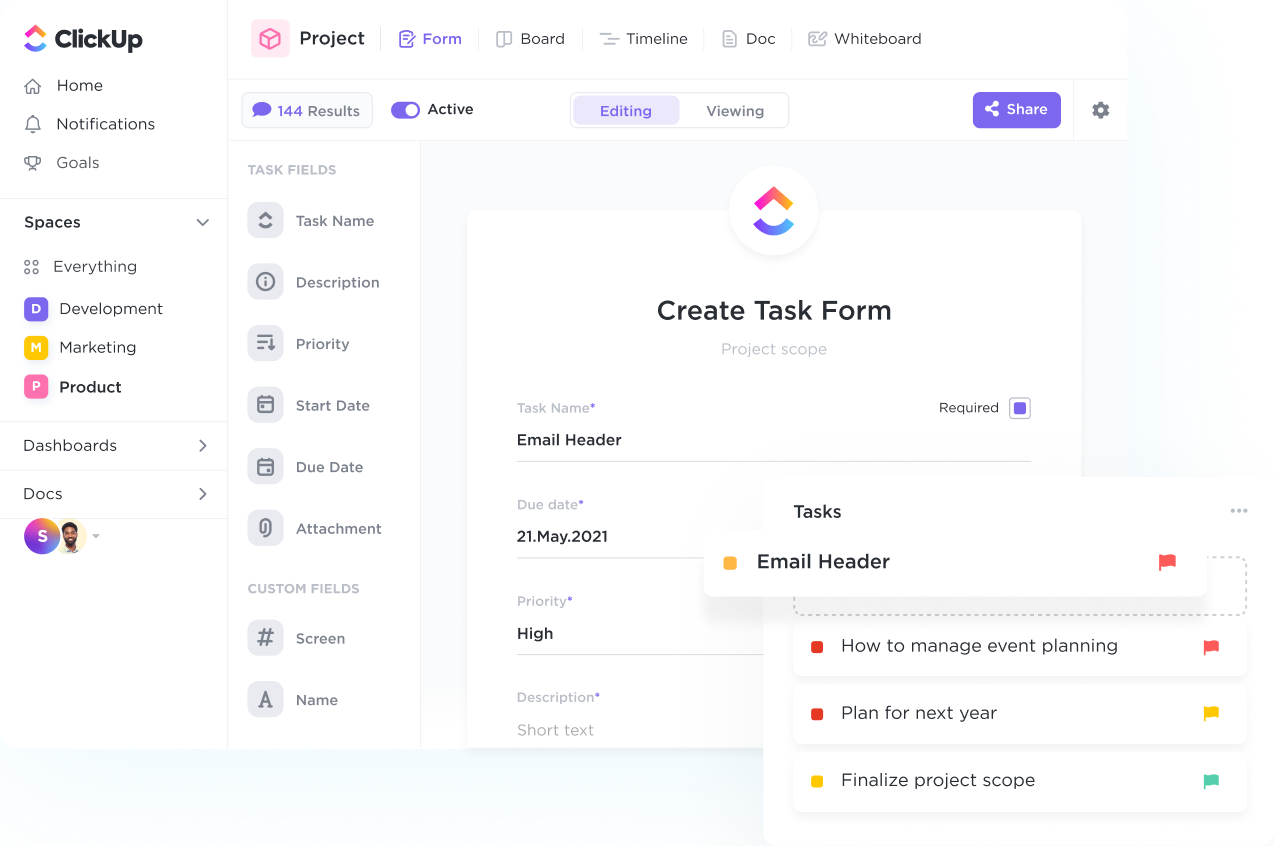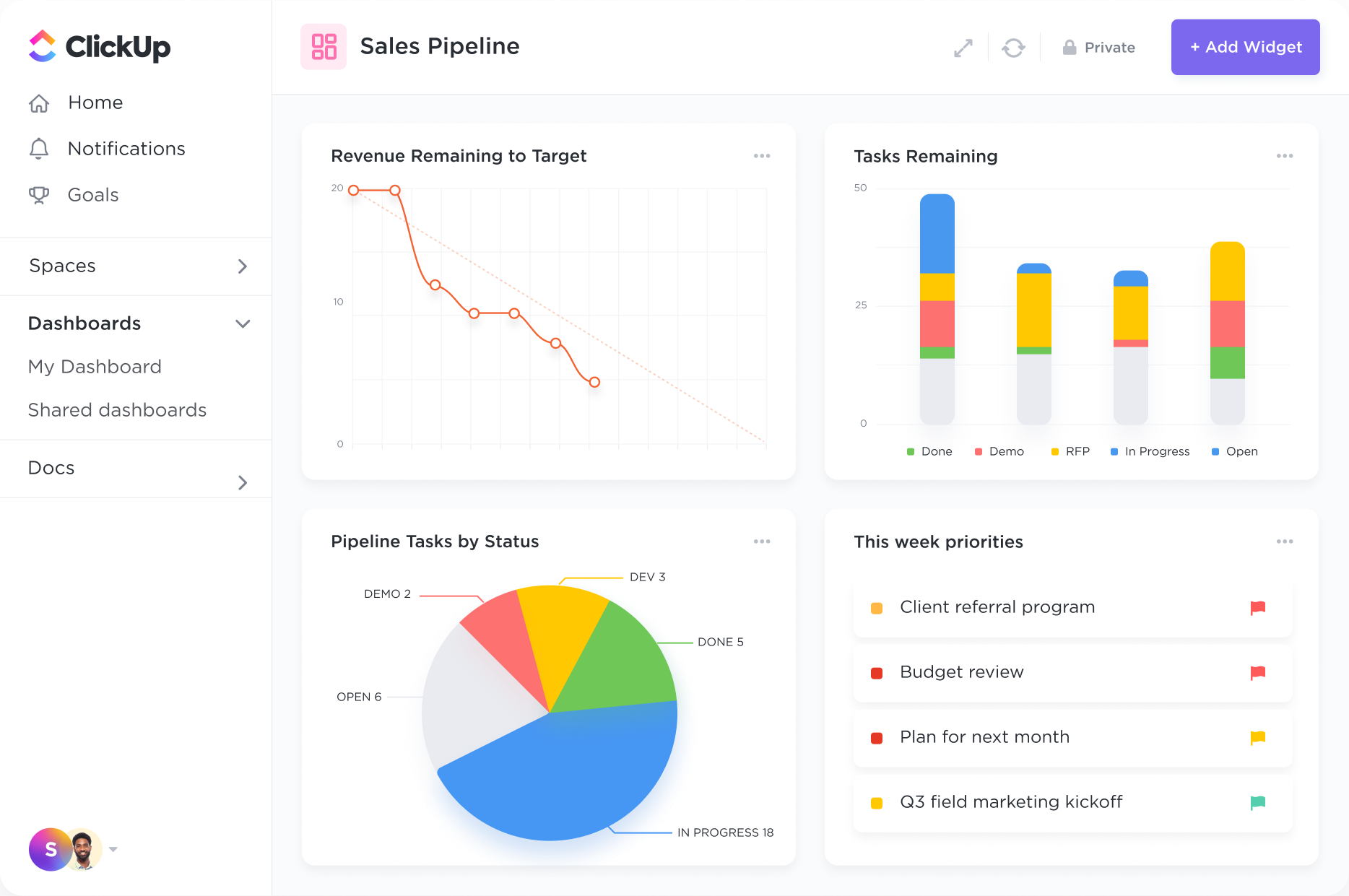Onboard customers and collect info in a snap.
Streamline your intake process, organize response data, and automatically create tasks with custom branded Forms powered by conditional logic.

Optimize your procurement processes with a customized CRM system designed for efficiency and productivity using ClickUp. Streamline vendor relationships, track purchases, and manage contracts seamlessly with our user-friendly platform. Take control of your procurement operations and boost your team's performance with ClickUp's powerful CRM solution.
Free forever.
No credit card.
Trusted by the world’s leading businesses
Streamline your intake process, organize response data, and automatically create tasks with custom branded Forms powered by conditional logic.

Create high-level views to monitor customer lifetime value, average deal sizes, and more. ClickUp's 50+ Dashboard widgets make it easy to visualize all of your customer data in one place.

CRM software can help streamline the procurement process by automating purchase orders, tracking supplier interactions, managing vendor relationships, and providing insights into purchasing patterns and supplier performance.
Procurement managers should look for CRM software with features such as supplier relationship management, contract management, spend analysis, procurement analytics, and integration capabilities to streamline procurement processes, improve supplier collaboration, and enhance decision-making.
Yes, CRM software can integrate with procurement tools and systems to streamline processes, improve data accuracy, enhance communication, and provide a more comprehensive view of vendor relationships and purchasing activities.